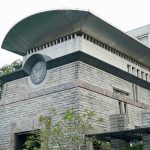Trump nominates political appointee to be US ambassador to Singapore
Reading Time: 3 minutesUS President Donald Trump has nominated entrepreneur Anji Sinha as his pick for the next US ambassador to Singapore, one of its key diplomatic postings in Asia, following his return to the White House in January.
Little is publicly known about Dr Sinha, who has no discernible online presence or record of previous diplomatic or government service. Her nomination now awaits Senate confirmation, a process that could see lawmakers quiz her on her qualifications and policy outlook.
Announcing the nomination on Truth Social on Tuesday, 11 March, Trump said Sinha was a “highly respected entrepreneur, with an incredible family”. He added that Singapore remains a vital partner for the US and expressed confidence that Sinha would represent US interests effectively while prioritising his “America First” agenda.
During Donald Trump’s first presidency, the Singapore ambassadorship remained vacant for nearly four years. His nominee, former deputy national security adviser KT McFarland, withdrew her candidacy in 2018 after her confirmation was stalled in the Senate due to concerns raised by the Senate Foreign Relations Committee over her testimony regarding communications with Russia. Instead, the US embassy was led by chargés d’affaires Stephanie Syptak-Ramnath (2017–19) and Rafik Mansour (2019–21), during the period of vacancy.
If confirmed, Sinha would assume the ambassadorship at a time when US-Singapore relations remain crucial, as the city-state aims to maintain economic and security ties with the US while deepening engagements with China and regional blocs such as ASEAN.
Kaplan’s term raised questions on political appointments
The outgoing US ambassador, Jonathan Kaplan, who left the post in January, was appointed by former US President Joe Biden in July 2021. A tech executive and political fundraiser, Kaplan took office during a period of heightened US-China tensions, when Singapore played a strategic role as a regional ally balancing its relations with both superpowers.
However, Kaplan faced allegations of misconduct, mismanagement, and strained relationships with local ministries, according to a February 2024 report by the US Department of State’s Office of Inspector General (OIG). The report examined issues raised during Kaplan’s tenure and highlighted leadership failings. Embassy employees spoke of a “culture of fear”, with some reporting direct threats of reprisal, Bloomberg reported. Additionally, the pursuit of multiple “unrealistic” projects by Kaplan, who received criticism for his informal attire at official events, diverted embassy resources and impacted staff workloads.
The report also identified financial mismanagement, including USD 48,000 in unsubmitted or insufficiently documented travel vouchers and a USD 27,000 embassy event on the USS Makin Island that featured a grand piano played by his friend. The OIG found that these expenditures diverted funds from diplomatic priorities and public engagement initiatives, raising concerns about financial oversight at the embassy. Operational inefficiencies were meanwhile noted in the economic-political section, which frequently missed deadlines, and in information management, where internal security and equipment oversight were lacking.
The OIG issued 23 recommendations to address these deficiencies, ranging from improved financial oversight to stricter adherence to leadership and management principles. The Department of State concurred with 22 of the recommendations and implemented corrective measures. The findings renewed criticism of political donors in ambassadorial roles, as Kaplan, a major Democratic fundraiser with no government experience, had donated over USD 100,000 before his appointment.
Role of envoys
The US embassy in Singapore facilitates military cooperation under the 1990 Memorandum of Understanding, which gives US forces access to Singapore’s bases. The city-state is also the US’s largest trading partner in Southeast Asia (SEA), as US firms have substantial investments in Singapore, most notably in technology, finance and pharmaceuticals.
The position of the US ambassador to Singapore was established in 1966, when bilateral diplomatic relations began, and the ambassadors have helped shape US-Singapore ties in trade, security and strategic cooperation.
The first official ambassador, Francis Joseph Galbraith, served from 1966–69 and was followed by Charles T. Cross (1969–71), who worked on strengthening military and economic cooperation during a period of regional instability.
John H. Holdridge (1975–78), a seasoned diplomat and Asia expert, further developed strategic ties, while Jon Huntsman Jr. (1992–93), later a governor and ambassador to both China and Russia, emphasised economic diplomacy.
Businessman-turned-diplomat Steven J. Green (1998–2001) worked to advance US commercial interests in Singapore as it became a financial hub. His successor, Frank Lavin (2001–05), played a key role in negotiating the US-Singapore Free Trade Agreement, which remains a cornerstone of economic relations between the two countries.
Patricia L. Herbold (2005–09) focused on strengthening defence cooperation and educational exchanges, while David I. Adelman (2010–13) prioritised innovation and entrepreneurship, aligning with Singapore’s push to become a global technology leader. Kirk Wagar (2013–17) worked to enhance cultural exchanges and US business ties.
Unlike previous nominees with diplomatic or government experience, Sinha’s professional history remains unclear, and her views on foreign policy remain unknown. As Singapore plays a key role in balancing US-China competition, Sinha’s confirmation process may offer insight into how Washington intends to approach its regional strategy.

